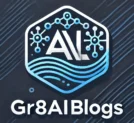Here’s Why Novelists Worry About the Rise of AI Are Often Misunderstood
The rapid advancement of artificial intelligence (AI) has stirred a diverse array of responses from different professional sectors. Among the most vocal are novelists, who often express concerns about how AI could threaten the essence of creative writing. However, a deeper examination reveals that these fears are sometimes labeled as classist and ableist. This sparks an important debate about the intersection of technology, creativity, and societal structures.
The Narrative of Fear: Understanding Novelists’ Concerns
For many novelists, the rise of AI represents more than just a technological evolution. It embodies a potential upheaval of their creative livelihoods. The argument typically hinges around several key points:
- Authenticity of Voice: Writers are concerned that AI-generated content lacks the genuine emotional depth and unique perspectives that human authors bring to their works.
- Economic Implications: With AI capable of producing vast amounts of written content quickly. There’s a fear that this could undervalue the work of trained writers.
- Loss of Craftsmanship: Many novelists see the rise of AI as a threat to the artistry and craftsmanship that defines literary creation.
These concerns are valid, but there’s an ongoing debate about whether such apprehensions stem from a place of elitism or genuine worry for the future of the literary landscape.
Classism and Ableism: Are Novelists Just Protecting Their Turf?
A critical lens applied to these fears suggests they may reflect deeper societal biases. So, critics argue that novelists who fret over AI’s impact might be neglecting the accessibility that technological advancements can provide. Here are some points to consider:
- Democratization of Writing: AI tools can empower underrepresented voices by diminishing barriers to entry, allowing anyone with an idea access to writing tools that help them express their creativity.
- Expansion of Literary Forms: Rather than replacement, AI can serve as a tool for innovation in storytelling, pushing boundaries and expanding what literature can be.
- Ability to Collaborate: Some authors see AI as a collaborative partner that can help them brainstorm ideas and enhance their creative process.
While these points illustrate the potential positive impacts of AI in the literary space, they also shine a light on the privilege embedded in some novelists’ fears. As many authors advocate for preserving traditional writing methods, the question arises: Are they defending their craft, or are they inadvertently promoting a more restrictive literary environment?
Balancing Tradition and Innovation in Literature
The clash between traditional writing and AI-driven narratives raises critical questions about the future. How can writers adapt to these changes without compromising their artistic integrity? A balanced approach is necessary, where both innovation and tradition can coexist. Here are some ways to embrace this duality:
- Embrace Mixed Media: Writers today can use AI-generated content as a stepping stone, integrating it into their work rather than viewing it as a competitor.
- Engage in Open Dialogues: Discussing AI’s implications for literature openly could lead to more understanding between traditionalists and innovators.
- Continue Evolving Skills: So, just as writing styles have changed over the decades, authors should remain adaptable, continually refining their skills to remain relevant.
AI itself is not the enemy. So, the real issue lies in how it is utilized and understood by those within the literary community.
Redefining the Future of Novel Writing
As we move forward, novelists need to rethink their relationship with technology. Rather than fostering fear, the focus should be on leveraging AI to enhance storytelling. Key considerations include:
- Creating New Genres: So, AI can inspire new literary genres, blending styles and narratives that have not been explored.
- Enhanced Reader Experiences: Interactive storytelling, powered by AI, offers readers personalization that can make literature more engaging.
- Ethical Considerations: Navigating the ethics of AI in writing will be crucial. Discussions should center around copyright, authorship, and the cultural implications of AI content.
Conclusion: Embracing Change with Open Minds
As AI reshapes the fabric of creative writing, it is paramount for novelists to approach these changes with a mixture of caution and curiosity. Fears about AI’s impact on literature do not have to be steeped in classism or ableism. Instead, they can signal a necessary conversation about the evolution of artistry in a digital age.
Ultimately, fostering a spirit of collaboration and adaptability may lead to a richer literary landscape where both human creativity and advanced technology can thrive side by side. Thus, producing works that resonate on deeper levels with wide-ranging audiences.
For those navigating the complexities of modern writing amidst technological advancements, exploring professional spaces. Kensington Guest Suites may provide both inspiration and community support.
Discover more from
Subscribe to get the latest posts sent to your email.


